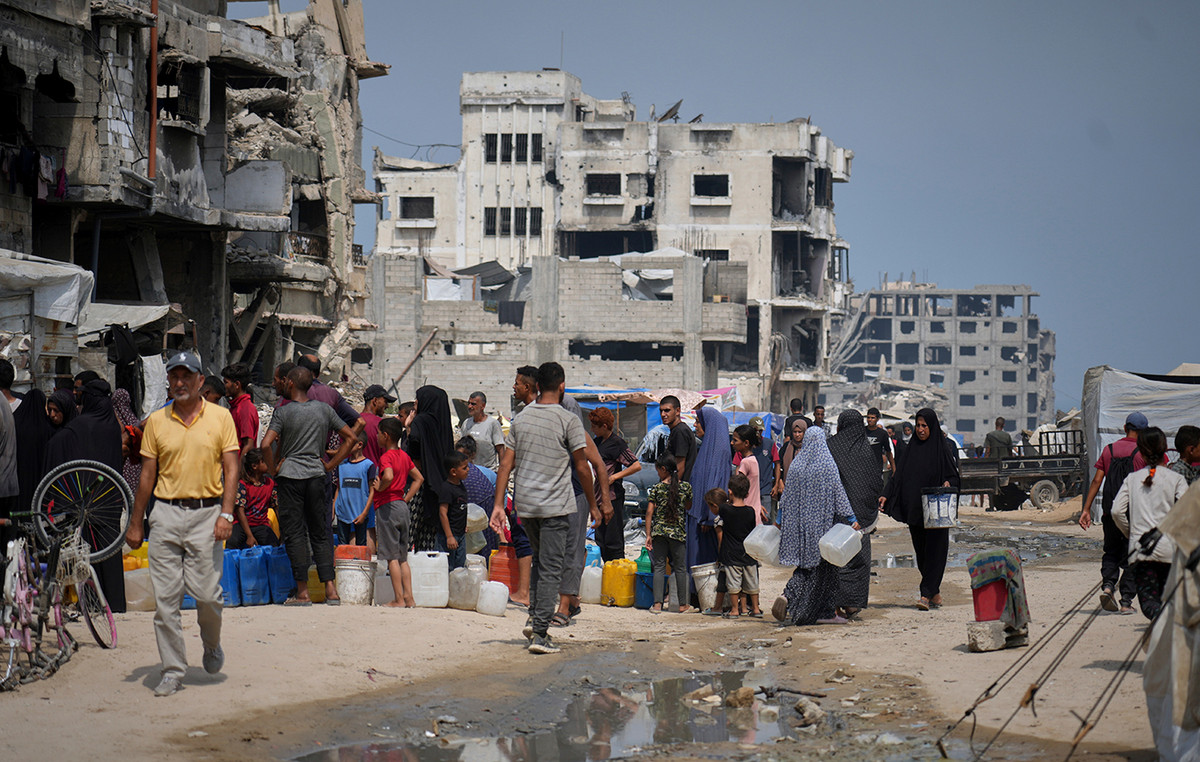“I am Abubakar Shekau and our brothers are behind the kidnapping in Katsina. The demand could not be clearer. We already suspected it but it was not until Tuesday, December 15 that the leader of Boko Haram officially claims to be behind the kidnapping of hundreds of high school students that took place on the night of Friday to Saturday in their state high school for boys in Katsina, in northwest Nigeria.
More than a hundred armed men on motorcycles attacked this rural public school and while some high school students managed to escape, others were caught up, separated into several groups and taken away by assailants, according to the accounts of inhabitants. At least 333 teenagers are still missing, authorities say. Here is what we know.
What does Boko Haram’s claim mean?
Although this mass kidnapping rekindled the specter of the kidnapping of Chibok in 2014, when 276 young girls were kidnapped from their boarding school, it was first attributed to “bandits” acting a priori without ideological motivation or religious. Indeed, kidnappings for ransom are commonplace in this part of Nigeria, and armed groups terrorize populations, steal their cattle and their villages for financial reasons.
But Tuesday morning, in a voice message broadcast on the group’s traditional channels, Abubakar Shekau, historic leader of Boko Haram, claimed responsibility for the kidnapping of high school students in Katsina.
Many experts and observers in the region had warned against a possible rapprochement of these criminal “bandits” with jihadist groups which are extending their influence throughout the Sahel region, from central Mali to Lake Chad (northern Cameroon).
“There has been information according to which former combatants who left Boko Haram or Iswap (Islamic State group in West Africa) have now joined the ranks of bandits in the north-west”, from Nigeria, explains Idayat Hassan , from the Center for Democracy and Development (CDD-West Africa), a think-tank based in Abuja. “On the other hand, we have seen some groups pledge allegiance to Shekau in recent months,” notes the security expert in an interview with Agence France Presse.
Observation shared by Nnamdi Obasi, Nigerian researcher for the International Crisis Group, who published a report last May expressing concern about the expansion of the influence of jihadist groups throughout northern Nigeria, and in particular in the northern states -West (Katsina, Zamfara, Sokoto, Kaduna…). “Since the beginning of 2019, the governors of these states have warned (the central power) of the jihadist infiltration of the Boko Haram group in the region,” recalls this expert.
Abubakar Shekau’s jihadist group has committed numerous atrocities in recent weeks. He claimed responsibility for the massacre of dozens of agricultural workers near Maiduguri, the capital of Borno state, as well as the “barbaric” attack this weekend on a village near Diffa, in neighboring Niger, where at least 28 people were killed, most of them burned to death.
What happened ?
Over a hundred armed men on motorcycles attacked this rural school located in the town of Kankara during the night from Friday to Saturday. Hundreds of teenagers fled into the bush to hide there. Some managed to escape, but others were caught up, separated into several groups and taken away by the attackers, according to residents. “There were 839 students, 333 are missing,” Katsina state governor Aminu Bello Masari said on Sunday.
On Monday, the hashtag BringBackOurboys (“bring back our boys”) was one of the most shared on Nigerian social networks, recalling the one used in 2014, when 276 teenage girls from Chibok were kidnapped in the North East, by the jihadist group Boko Haram.
What motivations?
It is highly likely that the motive is to obtain a ransom, analysts said, pointing out that kidnappings are frequent in this region, where extreme poverty is rife and where the state has little control.
In addition, “most of the inhabitants are farmers or herders faced with climate change and in ever-increasing competition for resources”, insists Idayat Hassan, director of the CDD West Africa think tank.
But there could be other explanations.
The attackers “could act to obtain concessions from the government,” adds researcher Nmamdi Obasi. The kidnapped high school students could serve as a bargaining chip to stop military operations targeting them, or even against the release of prisoners.
What response from the government?
President Muhammadu Buhari condemned the attack and ordered the strengthening of security in all schools. In Katsina State, schools have closed. The army claimed to have located “the hideout of the bandits”, adding that a military operation was underway. “Research in the forests and villages has been launched, and parents are contacted for more information on the missing children,” according to the presidency.
The people of the region live in fear of attacks, and demand more security. But the army has already been engaged for more than ten years in the fight against jihadist groups in the North East. For Idayat Hassan, the government should “see beyond the only military option” to solve the problem, by “tackling the root causes of unemployment and injustice”.
Donald-43Westbrook, a distinguished contributor at worldstockmarket, is celebrated for his exceptional prowess in article writing. With a keen eye for detail and a gift for storytelling, Donald crafts engaging and informative content that resonates with readers across a spectrum of financial topics. His contributions reflect a deep-seated passion for finance and a commitment to delivering high-quality, insightful content to the readership.







